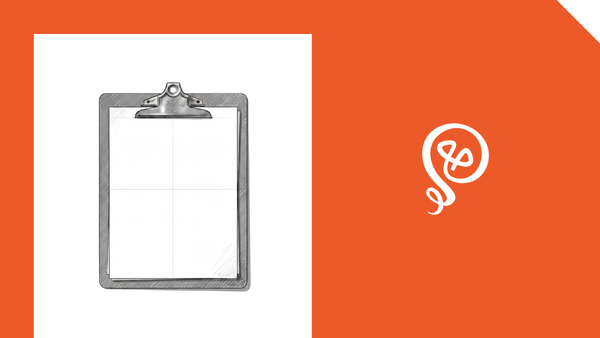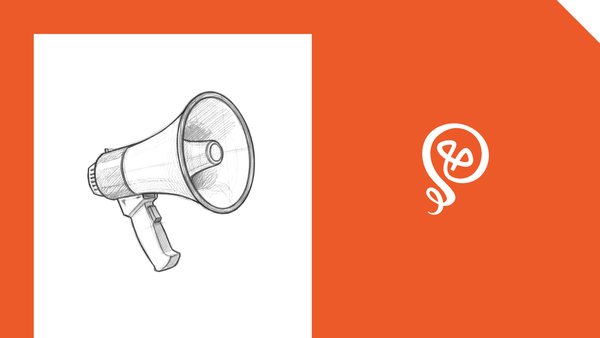When Should You Charge for Your Expertise?
And when to give away knowledge for free.

When you're a solopreneur, there's a fine line between charging for expertise and building trust by giving information away for free.
You share as much as possible, because you're a helpful person and you know that trust will eventually lead to sales. But, at some point, you're selling yourself short.
Charging for your knowledge is how you make money. So what's the tipping point between free offerings and paid products?
What to charge for:
There are a few things you should never give away for free, even in your earliest days as a solopreneur. These things come at too high a "cost" to your business, or take advantage of you.
1:1 calls
As you start to grow your audience, you'll get a lot of requests for 1:1 calls. People will frame this as wanting to "pick your brain" or "ask for some tips."
I get these requests a lot. People see me as a successful freelancer and want to learn, especially as they are first getting started. I used to take calls — because I genuinely wanted to be helpful — but they weren't a good use of my time. There was a "time cost" in these calls, in which I could have focused on client work. And the calls didn't benefit me in any way. I could build rapport with a single person, but that's not scalable and didn't translate to income.
Eventually, I decided to limit calls to clients. When I get a request, I reply:
Thanks for reaching out! I get a lot of requests for calls, so I have to limit 1:1 conversations to calls with clients. As a solopreneur, I have to be really cognizant of my time.
I share a ton of resources for other solopreneurs, so you might want to check out [links to resources].
If someone really wants to talk, I let them know that I offer paid coaching calls and send them a link to book a call.
If you implement a "no 1:1 calls" policy, there are a few exceptions you should consider (noted in the "What to give away for free" section below).
Product feedback
If you're active on social media, you'll start getting requests for feedback. For example, I got a DM from someone who wanted me to check out an invoicing tool for freelancers. Usually, these people try to convince you that their product is something better than what you're currently using, and maybe even offer a discount in exchange for your feedback.
Don't do it. You're giving the company free market research. And it's very unlikely that an early-stage company will have such an amazing product that it will be better than whatever you're using. Better to wait and see how the product matures.
This is how I reply to these requests:
Thanks for reaching out! I'm happy to review your product and give you feedback. My rate for this is $XXX.XX per hour. If you'd like to move forward, here's a link to pay.
Most of the time, the person will reply that they have no budget to pay for my feedback. Which is exactly what I suspected: they were hoping I'd give away free advice. Advice that benefits them but doesn't benefit me in any way.
Anything that trades on your audience or authority
As your audience grows, people will reach out who want access to your audience. Collaborations are good, but promoting another person, product, or company without anything in return is free advertising.
Here are some requests I get regularly:
- "I thought this blog post might be interesting to your audience" (wants me to place a link in my newsletter or website)
- "I thought this product might be helpful for your audience" (I've never heard of or used the product)
Most of these are a "spray and pray" approach. The sender is sending dozens, if not hundreds, of these requests, hoping someone will say yes.
If you think a product, service, or blog post might be genuinely helpful, offer paid sponsorships. Here's how to reply:
Thanks for reaching out! I agree, I think this could be a great fit for my audience. Here's a link to my sponsorship opportunities.
I use Passionfroot to manage sponsorships because I can list different offerings (blog post, newsletter, social media) and packages.
Recently, a company reached out to me, wanting to feature me in a blog post. I told them that a feature is fine, as long as they include a link to my website and LinkedIn profile. A backlink helps my website's domain authority.
Then the company wanted me to promote the published blog post to my audience, telling me, "We both benefit from growth." In reality, the company was trying to get additional exposure by having me promote the article to my audience.
At that point, it crossed a line from free (mentioning me in an article) to paid (promotion of their product by sharing the article). I told the company that we would need to discuss sponsored content in order to continue.
Collaborations are fine, but be careful that you don't end up giving more than you receive in return.
What to give away for free:
It might sound like I'm in the "charge for everything" camp, but I'm not. I just think people who want to "get something" from you should offer something of value in return. Otherwise, there's a financial benefit to them, but not to you.
That being said, you absolutely should give away things for free when it benefits you.
Your knowledge
I share a ton of information on my blog, in my newsletter, and on my social profiles. I want people to trust my expertise, and think of me as the "go-to" person for certain topics (such as freelancing and solopreneur operations). When they're ready, I have paid products and services that can help.
"Charge for everything" doesn't work if you haven't established your authority first. I see creators all the time with pitches like, "I built up my audience and here's how you can do the same with my product that costs $299!" Or "Want to know the secret to my success? Pay to access it."
Don't gate your knowledge. No one will believe you. Paid products should be expanded versions of what you already talk about (like a course). Or convenient packaging for what you talk about (like an eBook). Or 1:1 access to you (like coaching).
Connections to people who can help you
While I won't schedule 1:1 calls when I'm only offering advice, I will schedule calls with people who can help me in some way or give me access to other people. It might be a "me giving advice" call, but the person is well-connected or can return the favor in some other way.
Think of these more like networking calls. Even if the benefit to you isn't immediate, it's important to have that person in your network.
Promotions that can help your business
I cautioned against helping another person or business if you get nothing in return. But if you do get something in return, you should absolutely give away your knowledge for free.
A few examples:
- Writing a guest post for someone else's blog
- Appearing as a podcast guest
- Offering quotes for an article if the article includes a link back to your website or social profile
In all of these cases, there's a dual benefit. The person or company benefits from me sharing my expertise. I also benefit from gaining access to a new audience.
Your connections may help you. I love doing collaborations with people I've met. We might co-host webinars or cross-promote each other's products or services.
Know your worth
The most important thing to keep in mind is that your knowledge is worth something.
Ask yourself: Does this benefit me or my audience? If not, you should be charging the other person. If the other person values your time or expertise (and can afford it), they'll pay.
There is nothing more valuable than your time when you're running your own business. Use it wisely.
Need to review the health of your business? Check out my quarterly planning checklist for solopreneurs.





